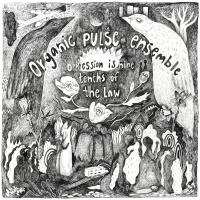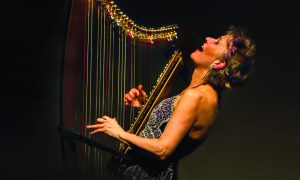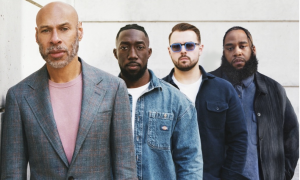A million New Yorkers can be wrong. So naturally, I had my suspicions about all the extravagant enthusiasm from the press and the local music community for (Le) Poisson Rouge, the club for new and various kinds of music that opened in Greenwich Village a year ago.
Two entrepreneurial musicians in their late 20s have been credited with rejuvenating the concert experience by enticing young audiences to listen to sophisticated -- and in some instances quite difficult – works in a setting where food and drinks are being served. Their mission, they say, is “to revive the symbiotic relationship between art and revelry.”
I finally got to the corner of Bleecker and Thompson streets Monday night. The 7:30 show was a banal refashioning of John Cage’s “Sonatas and Interludes” for prepared piano that made a tepid travesty of a radical mid-20th century American classic. The 9:30 show featured a young Russian violinist shamelessly promoting his new recording of Korngold’s schmaltzy Violin Concerto with a program of short, movie-centric violin pieces more suitable for the hardly hip Boston Pops.
And yet, something is happening here. The place isn’t merely cool, as the New York Times has dubbed it, the venue is a downright musical marvel. I wasn’t miserable on Monday, which I might have been with this program. Instead, I found the evening such a pleasure that I hope there is room on the crowded Poisson Rouge bandwagon for yet another critic.
Poisson Rouge (French for red fish) isn’t a dive and it doesn’t reinvent the wheel, and those things are important. With funding from private investors, David Handler (a violinist and composer) and Justin Kantor (a cellist and teacher), who met as students at the Manhattan School of Music, took over the Village Gate, the famed jazz club which had closed in 1993. They decorated the space in red and black and installed a fish-tank chandelier. They hired a decent chef and installed high-end audio and video equipment.
Then they tore down musical walls. Recognizing that young audiences are no longer genre-specific in their tastes, Handler and Kantor wanted an environment friendly to rock, electronica, folk, jazz, world music, new music, more traditionally classical chamber music and all the hyphenated genres that fit within the cracks.
To help program classical and new music along with indie rock, they hired Ronen Givony, a young production coordinator at Nonesuch Records. Three years ago, Givony started Wordless Music, which puts on unpredictable concerts of new music and pop music in small churches, museums, modest concert halls and immodest band shells at Lincoln Center and in Prospect Park in Brooklyn. From the start the series proved a huge success. Its innovative programs attract the crowds everyone else is looking for: eager, opened- minded listeners of all ages and from all walks of life.























